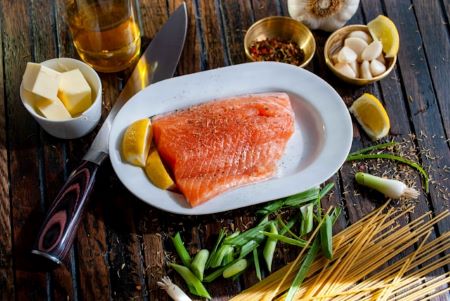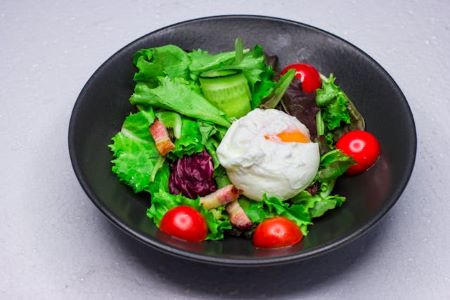Foods That Will Boost Your Brainpower!
Memory & concentration.
Why is it that some of us have that niggling feeling that our memory isn’t what it was.

Is memory decline an inevitable part of getting old? Is developing dementia a legitimate worry or do you just have too much going on?
Could it be your diet?
The ‘tip of the tongue’ syndrome is that feeling where you know what you want to say, you just can’t find the right word. Losing the car keys or your card, over and over. Not remembering place names, events, people or procedures. Being told that you don’t pay attention or you don’t listen when you are sure that you are really trying, it’s just so hard to remember.
In our brains we form memories using a substance called acetyl-choline. We need to have the right ingredients in the body for acetyl-choline to be made. Choline is used to do this and we get choline mostly from egg yolks. Choline is also present in liver, animal protein and fish, there is also some choline in tofu.

It is very difficult on a vegetarian, let alone a vegan diet, to get enough choline but you can and definitely should supplement if eating choline rich foods is out of the question.
If you are deficient in choline, you will experience memory and concentration issues, brain fog, fatigue, anxiety and ADHD like symptoms. In fact I have worked with many children who were or were about to be diagnosed with ADHD, who experienced a ‘remission’ when they started supplementing choline. Perhaps it was just a choline deficiency after all.
Some people have what we call SNPs (singular nucleotide polymorphisms) which are genetic mutations on their genes, in particular the gene called PEMT, which we can easily test you for with a methylation DNA test. Many people have a need for extra choline and aren’t aware of this, so they more easily develop symptoms when their dietary supply falls short.
Another substance that helps with memory is something called DHA (docosahexanoic acid) which is something that your body makes from Omega 3 fish oils. You can get some omega 3 from plant sources but far and away the best source is oily fish like mackerel, salmon and sardines. The added bonus with tinned mackerel and sardines is that they are small, portable and make a great lunch or snack as do boiled eggs.

“A study published in Nutrients (journal) found that levels of DHA in red blood cells was related to Alzheimer’s risk. Those with the highest levels of DHA had a staggering 49% lower risk of Alzheimer’s related to the lowest DHA group”
-Mark Hyman
The brain is made of DHA and DHA is also anti-inflammatory. Sugar and empty carbohydrates from bread/wheat/grains contribute to inflammation which leads to the progression of dementia. Alzheimer’s is now known as Type 3 diabetes. Sugar either alone in it’s many forms like granulated sugar, syrup, glucose or fructose, or in the form of empty carbohydrates like bread, wheat flour, pasta which the body easily and readily converts into sugar, is now seen as a major contributor to the development and progression of Alzheimer’s.
It’s not just about what you do eat, it’s also about what you don’t eat.
Foods that damage memory
- Sugar
- Wheat
- Vegetable oils inc Sunflower/Rapeseed oil and margarine which also includes toxic ‘cholesterol lowering spreads’
- Alcohol
Foods that enhance memory
- Eggs (in particular the uncooked yolks – cooked is also fine)
- Liver
- Animal protein, ideally organic and/or grass fed.
- Fish
- Oily Fish in particular
Ideally children and smaller framed people would eat at least 1 egg a day but larger frames would eat 2-4 eggs a day, especially if active. Eat liver once a week (see the recipe below for a delicious way to cook liver). Some animal protein every day, we need around 0/8g of protein for each kilo we weigh and if we are active, following a ketogenic diet or weightlifting, we will need more (take professional advice). At least 8 vegetables a day with two leafy greens so that you have enough of the right antioxidants that you need to use the choline properly (like PQQ from green peppers) and of course good quality animal fats and olive oil.

Remember that there are lifestyle factors at play as well as diet. Regular exercise, being a part of a community and spending time with friends and loved ones is also associated with better working memory and better physical and mental health.
So, why not join or even start a walking group in your local community and cover all these bases at once.
Photo by Milad Fakurian on Unsplash





